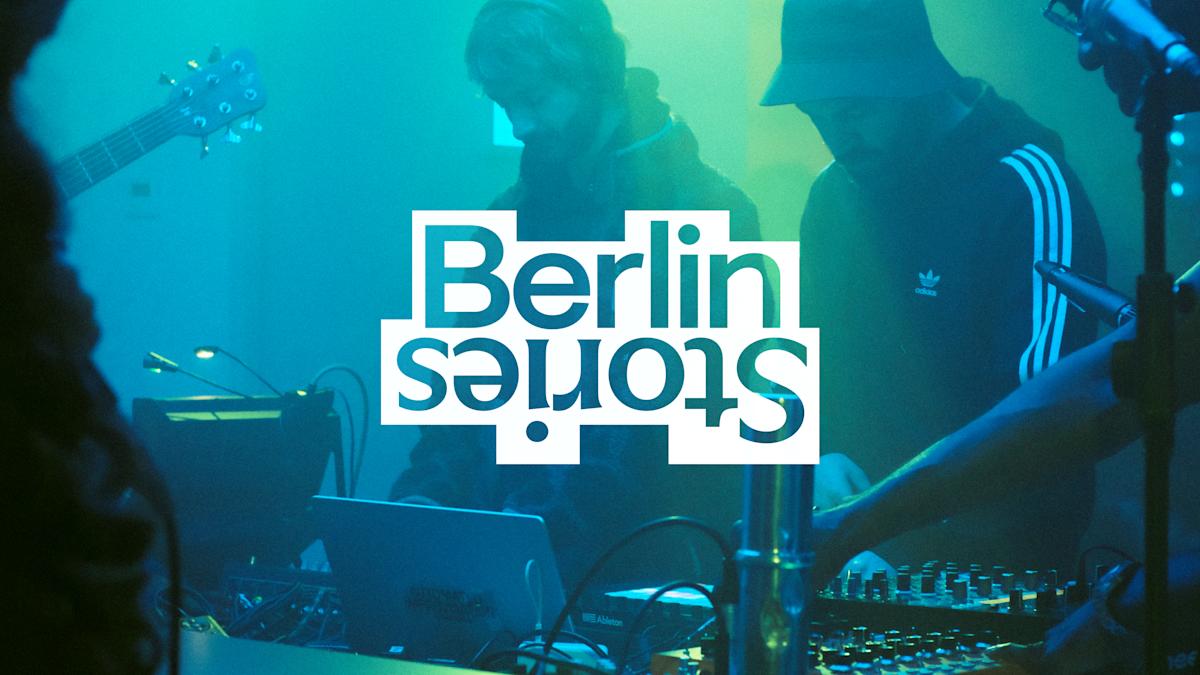
Berlin Stories
This week: Black history month, fusion soundscapes, soli kufa
Loading
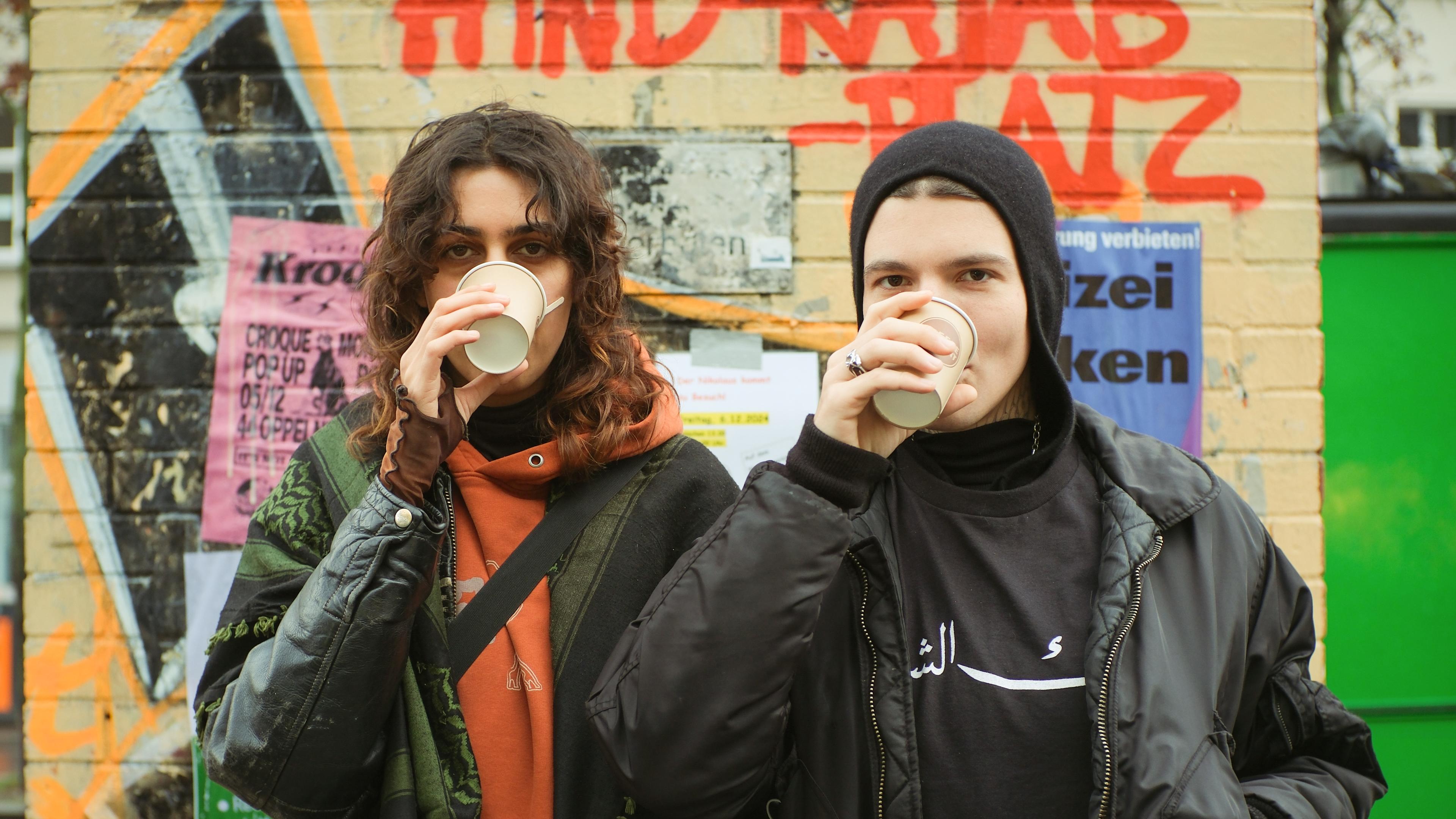
A new association offering financial support for those facing repression for their activism.
By Staff
Since October 2023, the Berlin Legal Fund, a GoFundMe campaign created by Matta and Nomi, has raised nearly €100,000 to financially support individuals arrested during Palestine solidarity protests in Germany. On 22 October 2024, this initiative evolved into 3ezwa, a registered association focused on providing financial and legal aid to those facing repression for their activism. Based at the Haus der Demokratie und Menschenrechte in Berlin, 3ezwa aims to fill the gaps in Berlin’s legal support networks regarding solidarity with Palestine and provides accessible support for those most affected by the German state’s repression.
We spoke to Nomi and Matta, founding members of both the Berlin Legal Fund and 3ezwa, to learn more about the Verein, their work, and solidarity with Palestine in Germany.
To begin, I would like to find out a bit more about the name 3ezwa. Could you tell me how you came up with it and what it stands for?
Nomi: Finding the name was a really long process and there were a few other options on the table. We sat together with many comrades of ours, especially our Arabic-speaking friends because we did not want to use a German or English name.
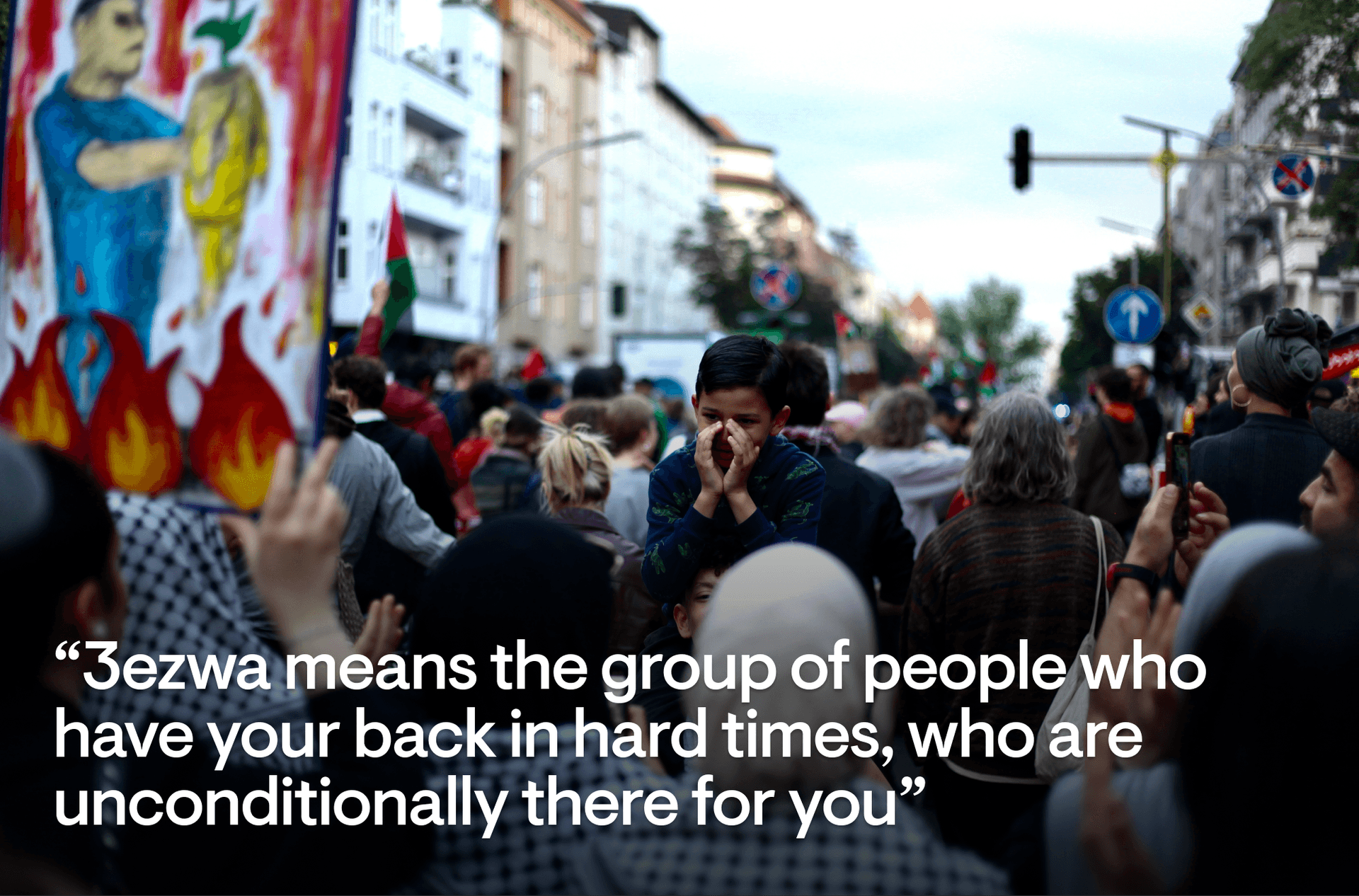
Matta: The first name we came up with was Faz3a (فزعة, pronounced faz'a), which is the call for communities to come together during the harvest in Palestinian villages back in the day. Nowadays Faz3a is also used if you need help from your homies, but just before announcing the Verein, the name got taken by another organisation.
We were then advised to call it 3ezwa (عزوة), which means the group of people who have your back in hard times, either family or friends, the people who are unconditionally there for you. It’s still related to Faz3a because 3ezwa refers to the people involved.
This may be a bit further down the line, but are you planning to expand on the work that you did with the Berlin Legal Fund to support other causes as well?
Nomi: 3ezwa is designed to address gaps in existing legal support structures. For example, Rote Hilfe, with who we also cooperate, one of the largest leftist legal support networks covers many cases in Germany, but there is a real gap in supporting the pro-Palestine movement. Similarly, the Kurdish movement also has several legal support structures, like AZADI.
Our focus now is definitely on Palestine, but we also don’t know how repression in Germany will develop in the next few years. We want to help keep people on the streets because if you get hit with a 1000 euro fine once, you might be able to scrape it together, but if you have that waiting for you every month, you eventually stop going. In the beginning, we thought we might end up with a couple thousand euros, but it really escalated.
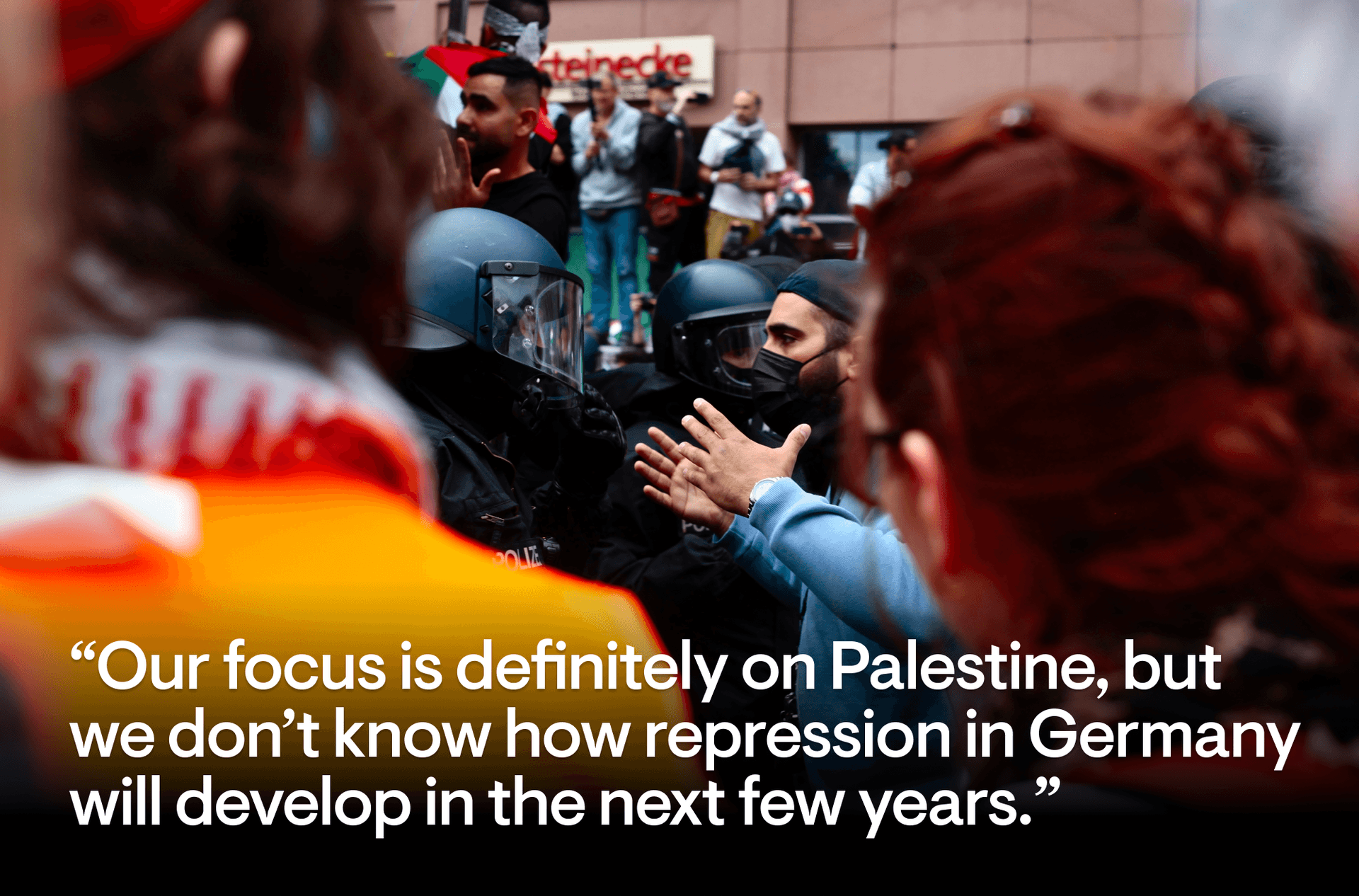
3ezwa also supports with migration issues for people affected due to their activism or general residency questions for people from Gaza. Because ultimately, this is what Germany’s master plan is. It’s not to imprison a bunch of European activists but to expand deportations in this European racist anti-migrant status quo. The BAMF (Federal Office for Migration and Refugees in Germany) has frozen all residency cases for Palestinians fleeing Gaza since January. Additionally, because a lot of people arrived in Europe via Greece, there are lots of deportations to Greece, and we all know what the situation is like there in the refugee camps.
Did you face any particular challenges when trying to set up the e.V. given the political climate in Germany right now?
Matta: Not really yet, but it can very well come. It was a conscious decision to start this Verein in Germany rather than from elsewhere. We stand with the Palestinian cause, in Germany. If they like it or not.
Nomi: We had a lot of support setting up the Verein. One of the board members has significant knowledge about Vereinsrecht (association law) and how repression works in Germany, which has been invaluable. They had a lot of knowledge and experience with organisations and specifically navigating bans and repressions, which was really helpful to run the process as smoothly as possible.
We also had help when starting the Berlin Legal Fund from groups like Palästina Kampagne and a comrade from KOP.
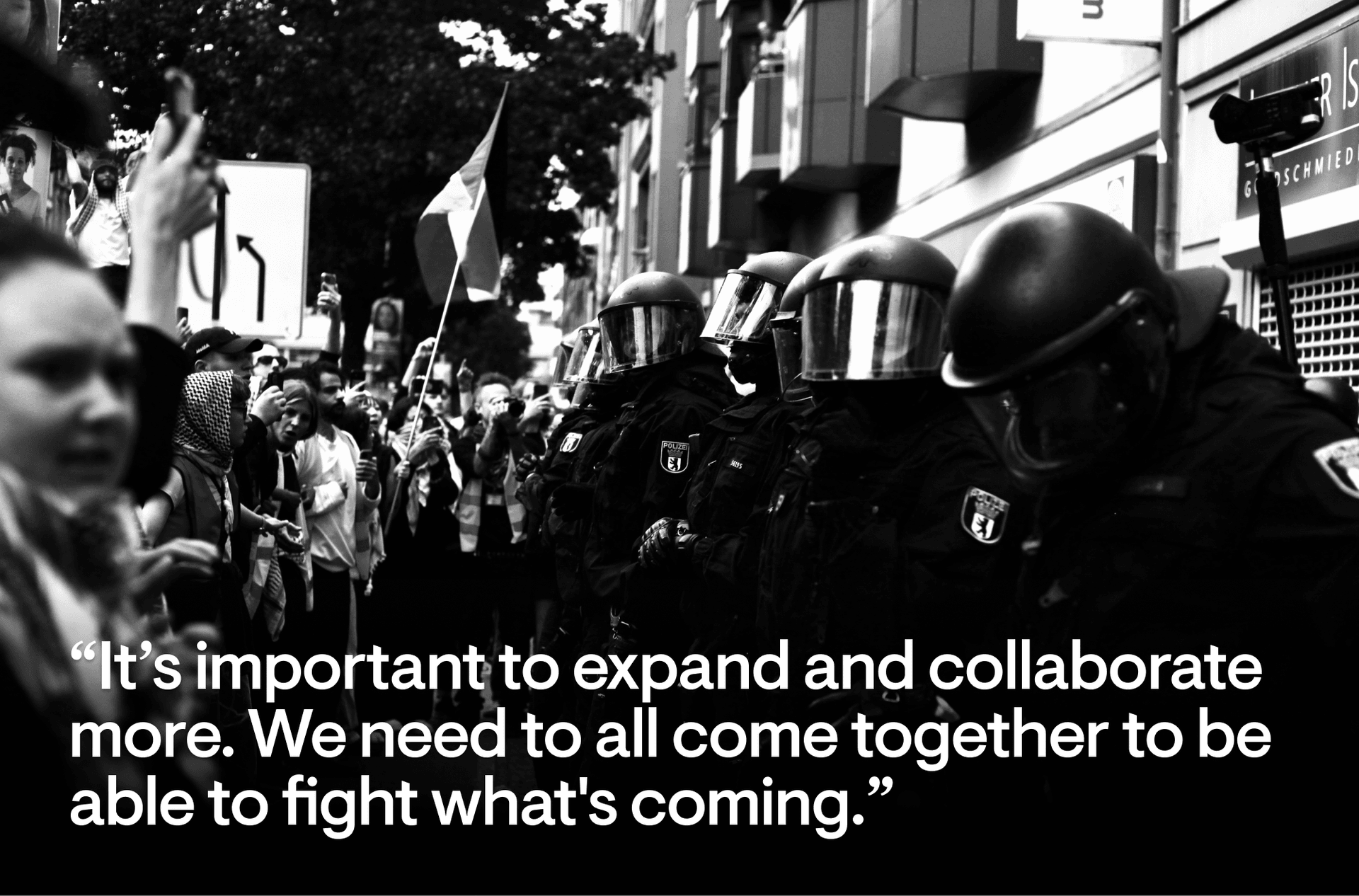
Aside from the board, we also have founding members that either are part of these organisations or represent them, alongside a few others such as Palästina Spricht, Mera25, Die Linke Neukölln, the Communist Party, SDAJ, Die Internationale Liga für Menschenrechte, and Rote Hilfe Berlin.
This was important for us to gain legitimacy and for the solidarity movement to gain a lot of ground. And so that if 3ezwa faces any repression, the other organisations can stand with us.
The main way to support 3ezwa is to become a member. What are some other possible ways for people to support your work that aren't necessarily financial, for those who don't have the means to sign up for the monthly subscriptions?
Matta: When signing up people can choose between an active membership and a supportive membership (Fördermitgliedschaft). Fördermitglieder support the Verein primarily financially, whereas active members have a say in the Verein and are expected to participate in or create new working groups that can vary from social media to facilitating counseling in their city. A couple of days ago we already had around 275 sign-ups, many wanting to be active members. This also means we need to carefully select applicants.
But right now, financial support is critical. On our first counseling day for example we already gave out almost €3,000. If someone can’t afford a monthly membership fee, there are still many ways to help. With the Berlin Legal Fund, for example, we saw people organising fundraising events at clubs, markets, and other creative efforts, which made a huge difference.
Looking back and taking into account what you know now, with this initiative turning into a long-term project and association, what advice would you have given yourself before setting up the fund? And what advice would you have for other groups trying to do similar things?
Nomi: I’d say, move faster. It doesn’t usually occur to you to make something so official, but with the German state becoming more authoritarian and fascist by the week, we need to strengthen counter-institutions as quickly as possible.
It’s also important to expand and collaborate more. Right now, there are so many groups and organisations doing great work, but it’s a little bit divided. We need to all come together to be able to fight what's coming.
Matta: I think we did pretty well overall, but time is always an issue. For us, things sometimes move slowly because we work in three languages and want to make sure we’re always getting input from the community. But making everything available in Arabic, for example, is so important.
Everything is a collaborative effort, you can’t do this alone. If you want to start something, reach out to others—connect with existing organisations and ask questions. Getting their input is essential to building something meaningful.
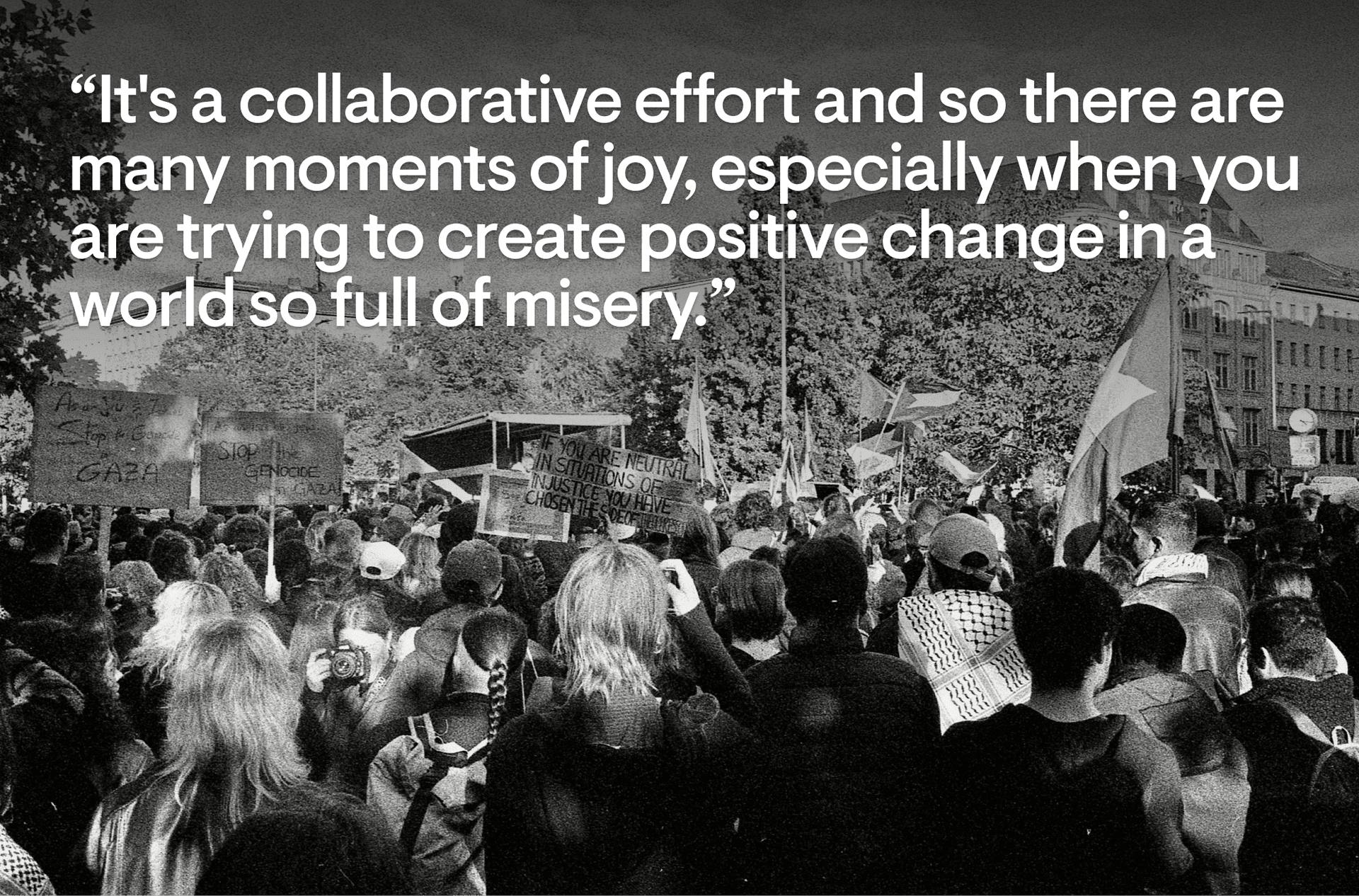
Have any particular moments of solidarity, joy, and collective support stood out to you, that have happened during the protests and also that have happened during the setting up of the Verein?
Nomi: The help that we got offered a lot of the time. And also simply the fact that everyone kept coming together, often really late in the evening, super tired, having to work in the day and yet to come together until late at night to figure things out. It's a collaborative effort and so there are many moments of joy, especially when you are trying to create positive change in a world so full of misery.
Matta: My favourite solidarity spot is the tea spot on Hermannplatz, everyone always comes together there and that brings me so much joy. There are people there that I have co-existed with for the past year, who I see more than my old friends.
Another moment that brought me much joy was seeing people reach out to us when we launched the Verein on Instagram that I knew from the streets, people who are repeatedly mistreated by the cops. It was great to see that this really works and that we are reaching the right people.
You've been to so many protests over the past year. What are some of the best signs that you have seen?
Matta: One of the best signs I saw was on October 6th or 7th this year, after there had been so many headlines about snipers being deployed to the streets. Someone had a sign saying: Go on, shoot me then.
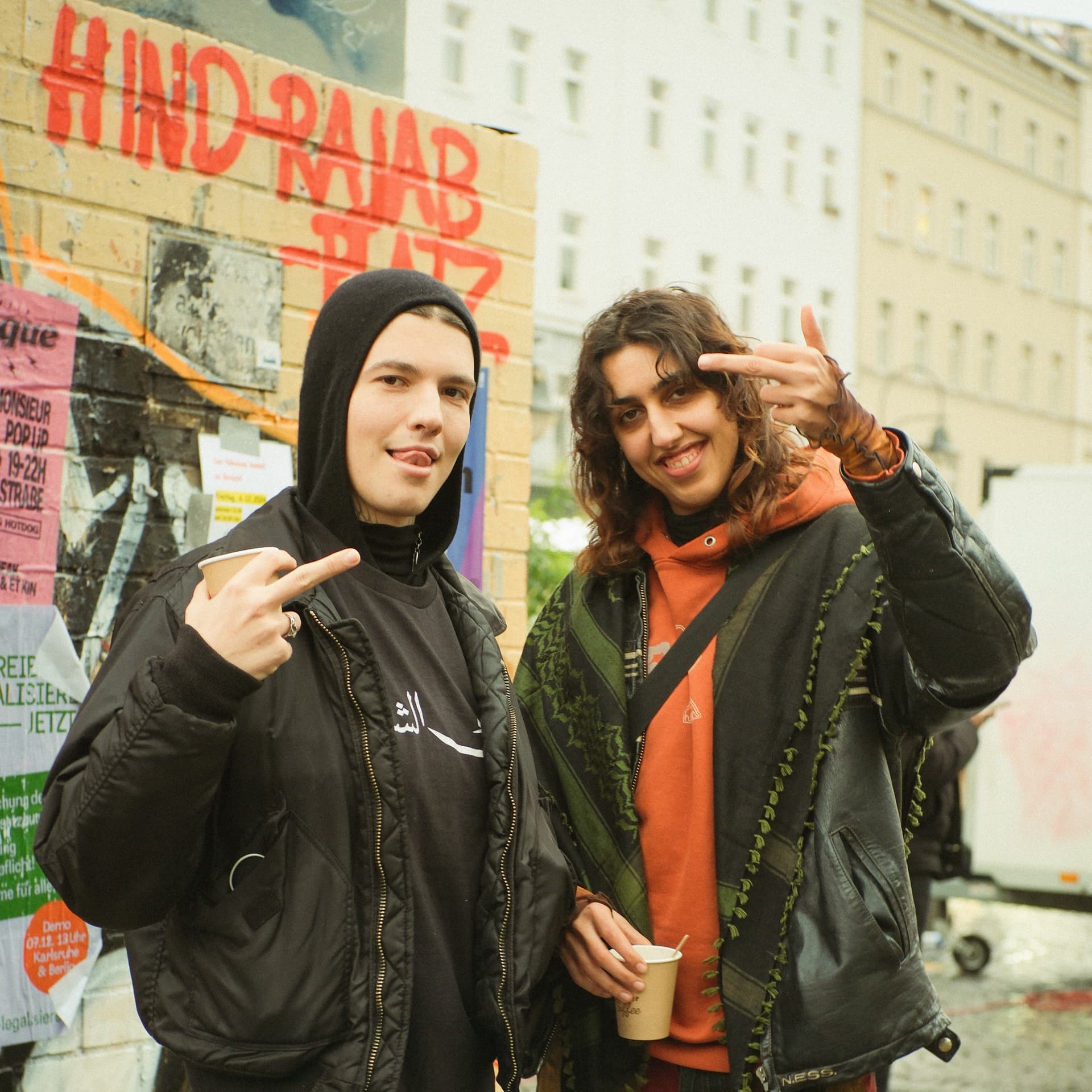
3ezwa runs walk-in sessions every Thursday at Greifswalder Str. 4, from 18:30-20:00. You can reach out to them via email, Signal (legal3ezwa.48), and on the streets at the protests.
Protest photos by Michael José, portraits of Nomi & Matta by Miriam Albertí.

This week: Black history month, fusion soundscapes, soli kufa
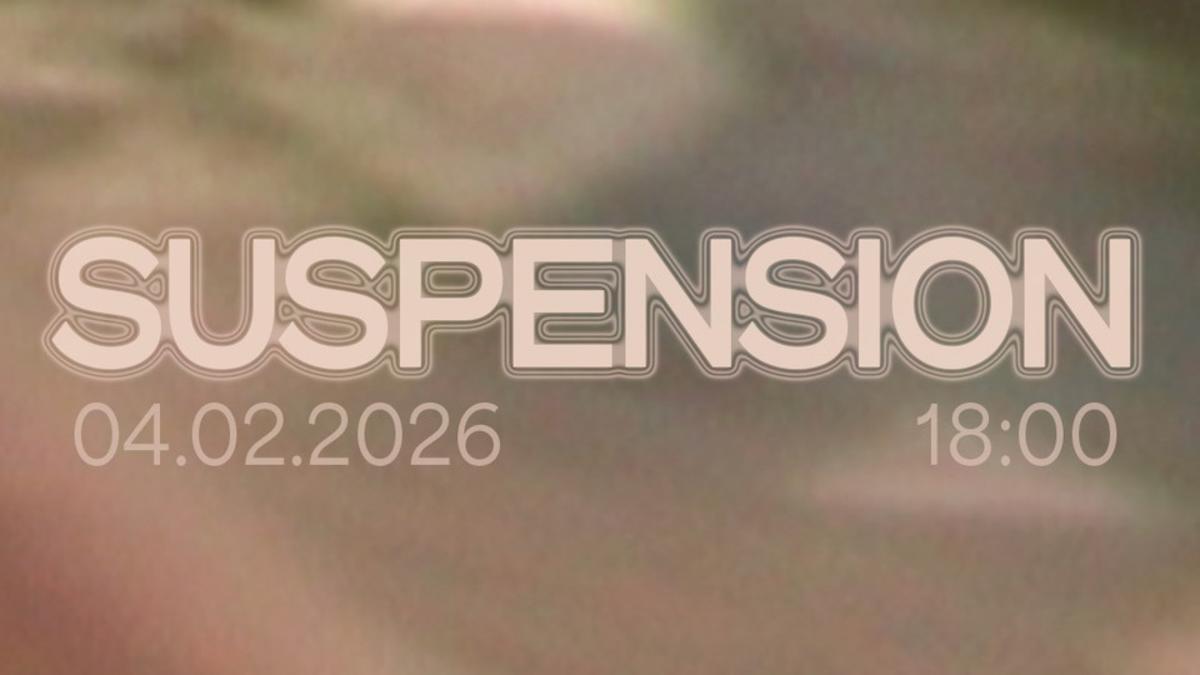
A screening, conversation, and live performance at Niemetzstraße 1.
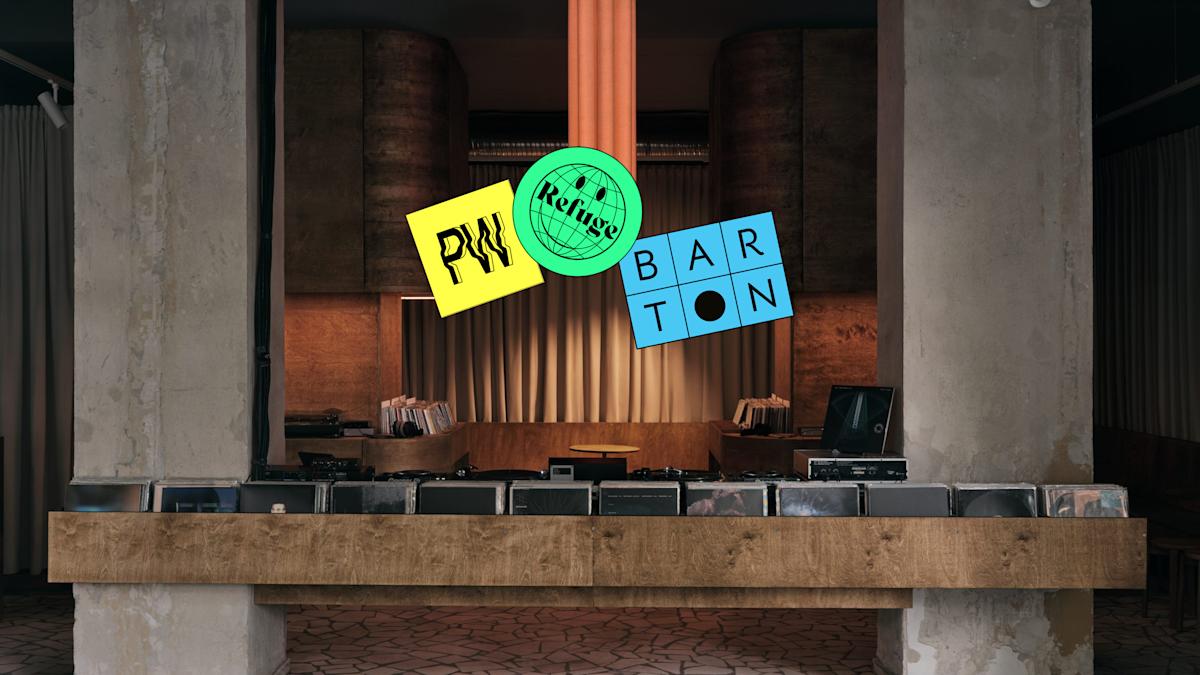
Refuge Worldwide residents head to Romania.